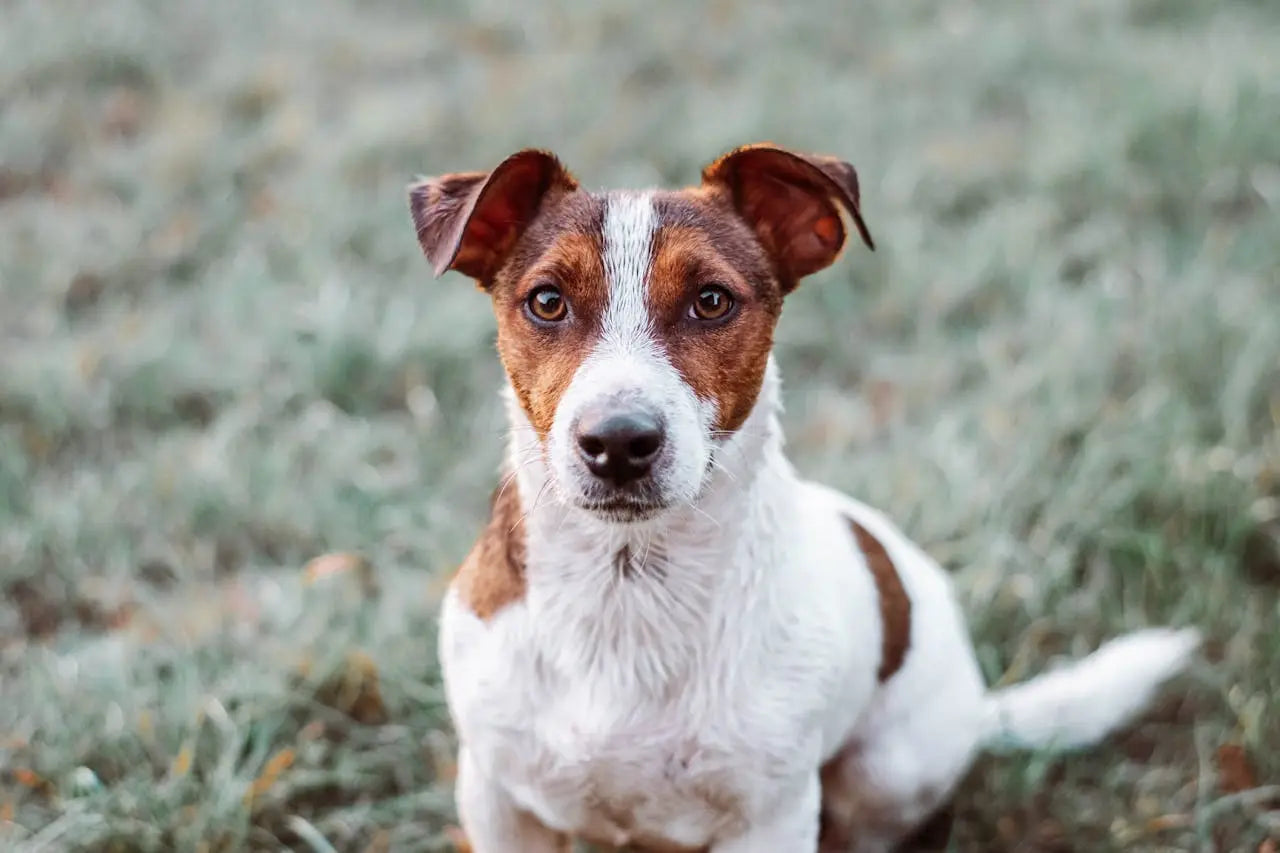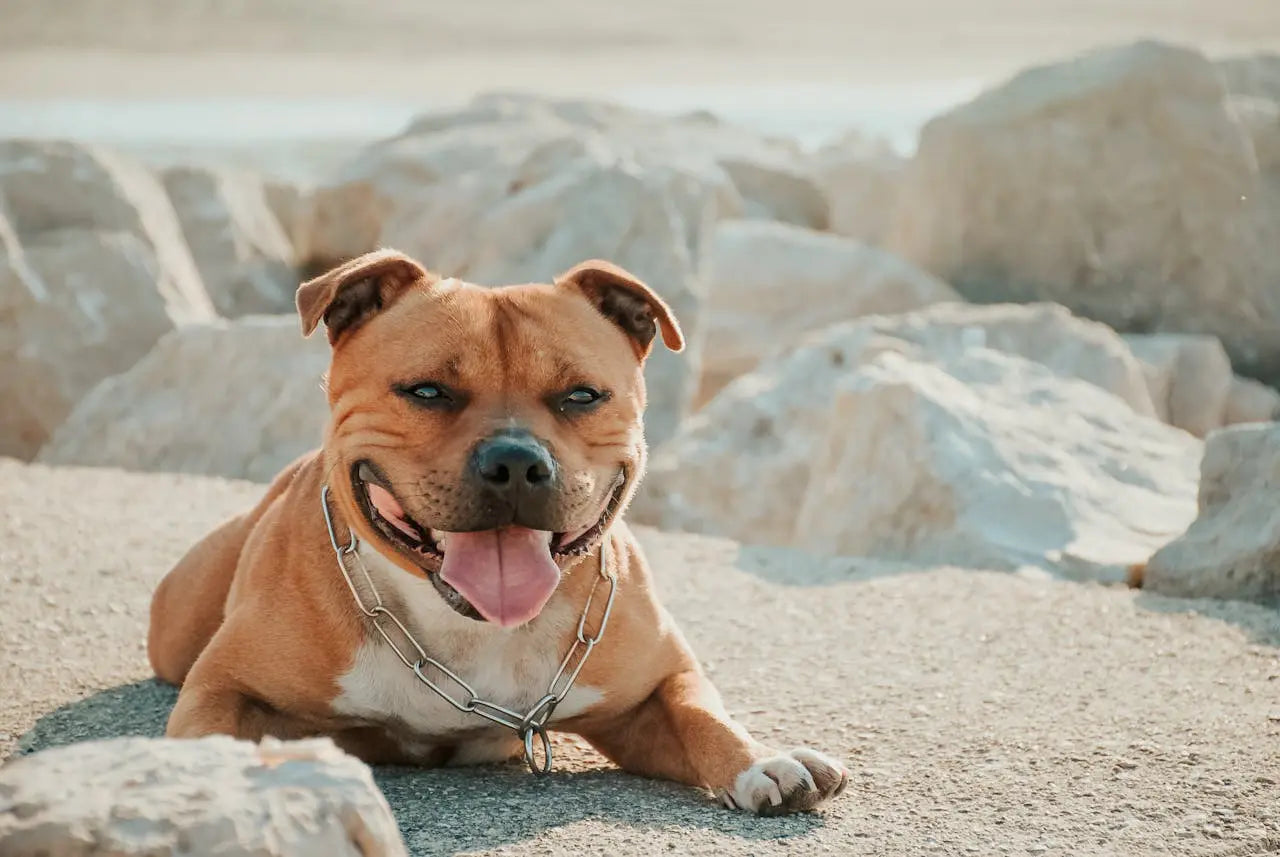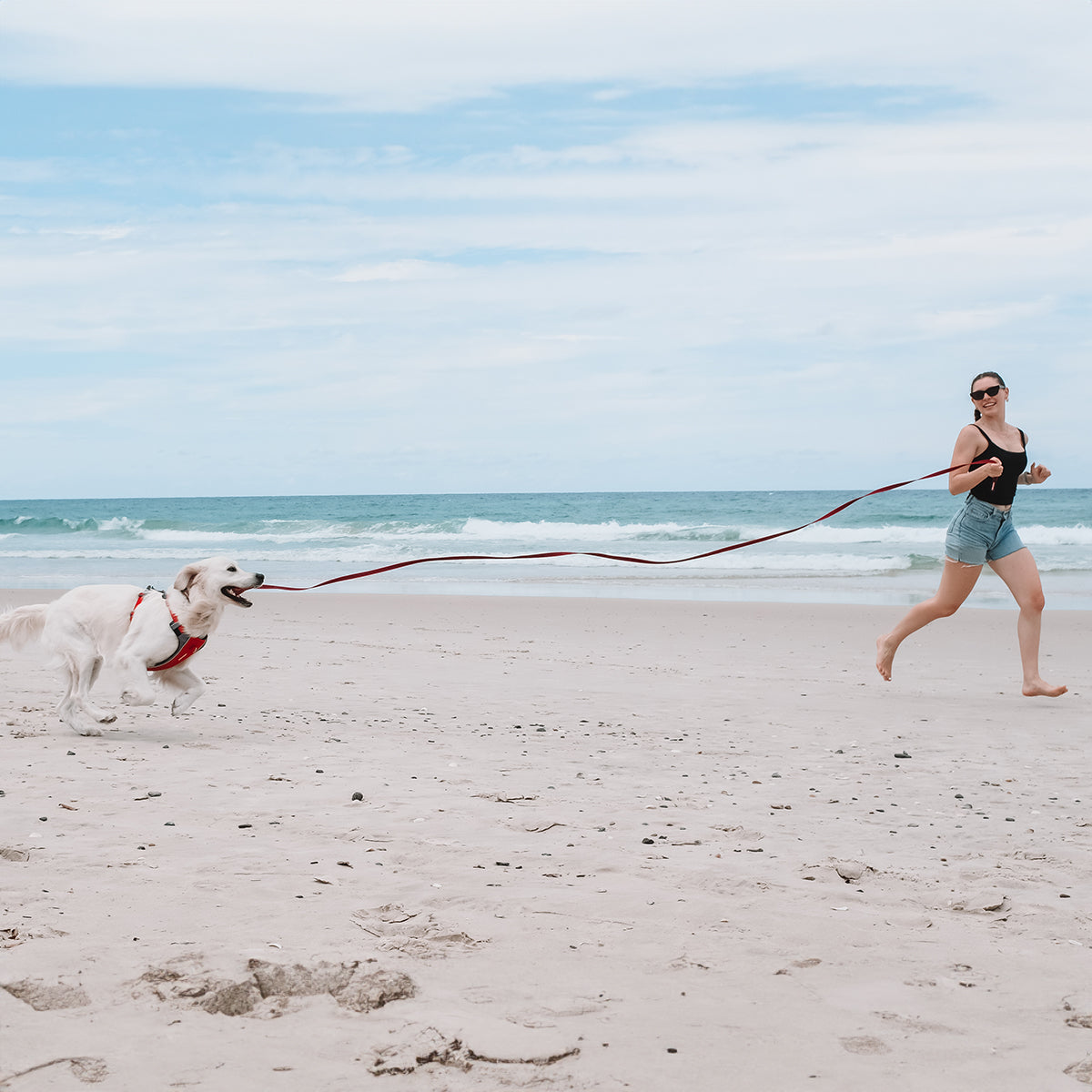
Jack Russell Terrier Dog Breed: Temperament, Personality, Care, & More (Guide)
Small but mighty, the Jack Russell Terrier is a bundle of energy, intelligence, and character. Known for their cheeky personality and endless stamina, Jack Russells make lively companions for active Kiwi households.
If you’re thinking of welcoming one into your whānau, this guide will help you understand their temperament, care needs, and the best gear to keep them happy in New Zealand.
Quick Facts Overview
|
Trait |
Details |
|
Breed Name |
Jack Russell Terrier |
|
Size Category |
Small |
|
Height & Weight |
25–38 cm tall, 5–8 kg |
|
Coat Type & Colours |
Short, dense, or rough coat; usually white with black or tan markings |
|
Energy Level |
Very High |
|
Origin |
England |
|
Grooming Needs |
Low to moderate |
|
Temperament |
Lively, intelligent, fearless, affectionate |
|
Trainability |
High (but independent and stubborn at times) |
|
Compatibility |
Good with kids, may chase small pets, socialisation needed with dogs |
|
Lifespan |
13–16 years |
Breed Origins and History
The Jack Russell Terrier originated in 19th-century England, developed by Reverend John Russell for fox hunting. Bred for stamina, intelligence, and courage, these little dogs could keep up with horses and flush foxes from burrows.
Today, while their hunting days are behind most, their strong prey drive, boundless energy, and fearless nature remain. In New Zealand, they’re popular family pets, agility dogs, and loyal companions for outdoorsy households.
Personality and Temperament
If you’re after a dog full of spirit, the Jack Russell won’t disappoint. They’re clever, playful, cheeky, and endlessly curious. Jack Russells are also fearless and protective, often acting like a much larger dog in a small body.
They bond closely with their families and love being part of the action. However, their high prey drive means they may chase cats, birds, or small animals, so supervision and training are key.
Recommended Gear:
Trainability and Intelligence
Jack Russells are highly intelligent and quick learners, but their independence can make them a challenge for first-time owners. They thrive with positive reinforcement training and get bored quickly with repetitive tasks.
Mental stimulation is just as important as physical activity. Puzzle toys, agility sports, and trick training are great ways to channel their sharp minds.
Recommended Training Gear:
Exercise and Activity Requirements
Jack Russells are little athletes. They need at least an hour (often more) of exercise daily, along with mental enrichment. Long walks, runs, fetch, agility, and scent games are ideal outlets for their energy.
Without enough stimulation, they can develop problem behaviours like digging, barking, or chewing. They’re best suited to active households who can match their energy levels.
Recommended Exercise Gear:
Physical Characteristics
Jack Russells are compact, athletic, and built for action. Their strong legs, deep chest, and lively expression reflect their working-dog origins.
-
Height: 25–38 cm
-
Weight: 5–8 kg
-
Coat: Smooth, rough, or broken; moderate shedding
-
Distinct Features: Alert eyes, perky ears, and a wagging tail that rarely stops
Recommended Size-Specific Gear:
Living Environment Suitability
While they’re small in size, Jack Russells aren’t your typical “lap dogs.” They need space to run and play, making them best suited to houses with secure, fenced yards. That said, they can adapt to apartment living if their exercise and activity needs are met.
They’re also escape artists, so secure fencing is a must!
Recommended Living Gear:
Grooming and Maintenance
Grooming a Jack Russell is fairly easy, though coat type makes a difference. Smooth-coated JRTs need weekly brushing, while rough or broken coats may need more frequent attention. Regular nail trimming, ear cleaning, and dental care are essential.
Recommended Grooming Gear:
Common Health Issues
Jack Russells are generally healthy and hardy, but they can be prone to:
-
Patellar luxation (loose kneecaps)
-
Deafness (sometimes genetic)
-
Eye issues like lens luxation
-
Legg-Calvé-Perthes disease (hip joint disorder)
Routine vet care and regular exercise help keep them in top form.
Recommended Health Gear:
Diet and Feeding Guidelines
Jack Russells have fast metabolisms, so portion control is key. Feed them a high-quality diet suited to small, active dogs, split into two meals per day. Watch their weight carefully — with too many treats, they can gain weight quickly.
Recommended Feeding Gear:
Compatibility with People and Other Pets
Jack Russells are loving with their families and great with older children who understand boundaries. However, their strong prey drive means they may not always get along with cats or smaller animals.
They can be social with other dogs if well-trained and socialised early, though supervision is recommended.
Recommended Social Gear:
Behavioural Issues and Management
JRTs are known for barking, digging, and chasing if they’re under-stimulated. They also have a tendency to pull on the lead due to their hunting instincts. Consistent training, exercise, and interactive toys are crucial to keeping them balanced.
Recommended Behavioural Gear:
Essential Gear for Jack Russell Terriers
-
Walking: Dog Leashes, Dog Harnesses
-
Style: Designer Collars, Leather Collars
-
Training: Treat Bags, Dog Training
-
Travel: Car Seat Belts, Bundles
-
Climate Gear: Coats, Summer Collection
-
Personalised: Personalised Harnesses, Customise
Frequently Asked Questions: Jack Russell Terriers
1. Do Jack Russells bark a lot?
Yes, they are naturally vocal and will bark when excited, bored, or alerting you to strangers. Training helps manage this.
2. Are Jack Russells good with children?
They’re great with older kids but may be too boisterous for toddlers. Supervision is always recommended.
3. Do Jack Russells get along with other pets?
Their prey drive means they may chase cats or smaller pets. Socialisation from a young age is essential if you want a multi-pet household.
4. Do Jack Russells shed much?
Yes, they shed moderately year-round. Regular brushing helps reduce loose hair.
5. Are Jack Russells good first dogs?
They can be challenging for first-time owners due to their energy and stubbornness. They’re best for people prepared for lots of training and exercise.
6. How much exercise does a Jack Russell need?
At least an hour per day, plus mental enrichment. They’re one of the most active small breeds.
7. How long do Jack Russells live?
They are long-lived dogs, often reaching 13–16 years with good care.
8. Can Jack Russells be left alone?
They don’t like being left alone for long. Without company, they may become anxious or destructive.
9. Are Jack Russells easy to train?
They are intelligent but independent. They learn quickly with positive reinforcement but get bored easily with repetition.
10. Do Jack Russells dig a lot?
Yes, digging is an instinct for this breed, stemming from their hunting background. Giving them a “digging spot” or extra play outlets helps.
Final Thoughts
The Jack Russell Terrier is not a dog for the faint-hearted — but for the right person or whānau, they’re a source of endless joy. Their intelligence, boldness, and cheeky personality make them unforgettable companions.
If you’re active, patient, and ready to invest time into training and exercise, a Jack Russell will reward you with loyalty, fun, and love for years to come. But if you’re looking for a quiet, low-energy lapdog, they may not be the right fit.
At the end of the day, Jack Russells thrive in Kiwi households that love outdoor adventures, mental challenges, and a bit of mischief. With the right care and the right EzyDog gear, your Jack Russell will live life to the fullest — and take you along for the ride.





Leave a comment
This site is protected by hCaptcha and the hCaptcha Privacy Policy and Terms of Service apply.